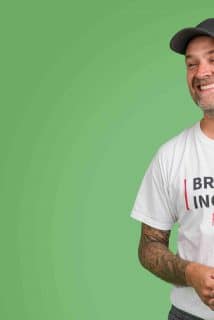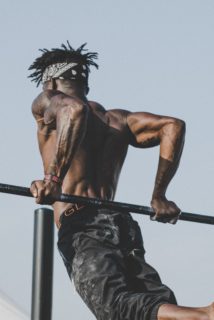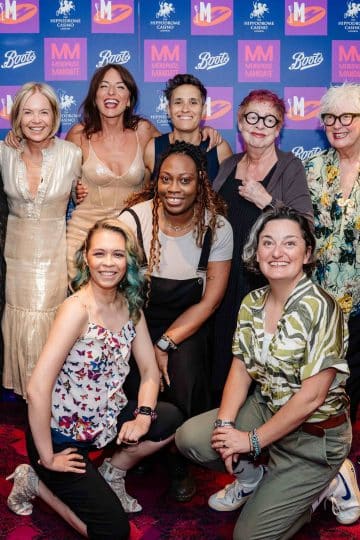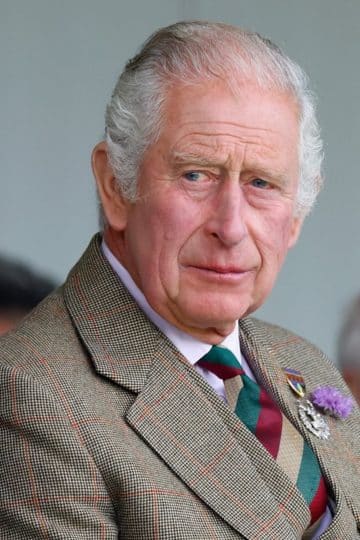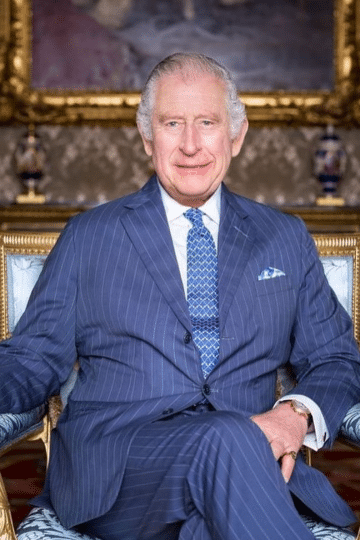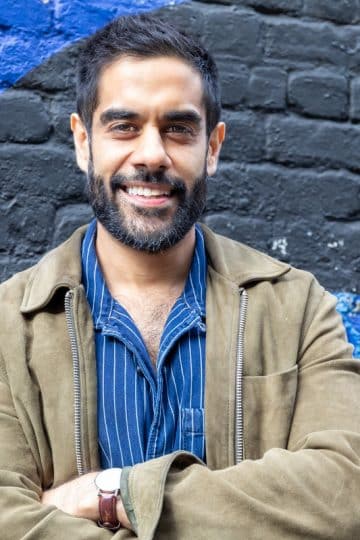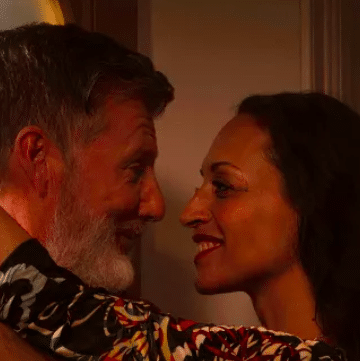David Birtwistle on Movember, ‘Too Hot To Handle’ & Mental Health
Health
The star of Netflix's lockdown hit 'Too Hot To Handle' star and personal training guru talks to us about his work with Movember and men's need to connect.
Of all the stories we’ve heard about people’s experiences during lockdown, few have matched David Birtwistle’s. The popular social media personal trainer found himself launched into superstardom while he was rooted at home as the Netflix reality TV show he starred in, Too Hot To Handle (think Love Island conducted under a sex ban) – seeing his IG followers pass the million mark while having no real world contact to begin to comprehend this. Now, David’s using his platform to continue his work in improving minds and bodies, and to this end is teaming up with Movember for some fund-raising in the common months, and spreading our kind of message – one of men finding meaningful connections.
Firstly, David, what are you up to with Movember?
Well, I’ve known about Movember for a long time – I used to play rugby and its very popular in the rugby community, to grow a mo’ and raise money. I can’t grow a moustache, people are like, ‘What even is that?’ it doesn’t work at all. But I’m looking at doing a fitness challenge event for Movember this year, roping in some friends along too.
Movember are good at that aren’t they? Combining mental and physical health for men.
Yeah the more that I dive into physical health, the more I see the reason so many people fail to do things in the first place is because their head isn’t in the right place. If you’re suffering from anxiety or depression, it’s impossible to start doing things. So by normalising mental health conversations in these areas, there’s less of a barrier for people to access physical health, which in turn helps people’s mental well-being.
When did you get started in fitness?
I’ve been active my whole life, as a kid I was out on my bike all the time, playing all the sports. I started training at the gym from about fifteen, and from there I went through all different stages like training for sport then training to look good and now training for longevity and health. Mental health is a prominent thing as well because if I don’t exercise I start to feel sluggish, I’m not myself – so having a physical challenge every time you go to the gym is a way you can be proud of what you’ve achieved.
There’s a moment in a workout when you have a choice in your head: do I give in or do I go with it? That moment, every time I get to it, I’m like ‘Don’t give in’. And that’s how you keep strong, when you realise you can overcome something. Building mental health through physical endurance.
Your videos and stories are very relatable in that way, it’s not an intimidating world you present…
100% man. So much of social media is not real. It’s faked and beautified. As a PT, I still find it just as hard as you. I can maybe lift more weight or do it for longer but it still hurts, that’s the truth of it. All you do is learn that the pain or the difficulty is what you have to go through in order to get stronger or tougher or fitter.
With Movember in mind – how important is the social side of training from your perspective?
Massively. Having the right people around you is game changing. If you are surrounding yourself with people with a mutual interest of training together, that is a support system that can lift you up. I’m going to the gym to meet my friends after this, and it’s one of the highlights of my week. Human beings bond through shared jubilation or shared struggle. You get both when you’re training with people. You’re going through it all together and then you get to the end where you’ve made it.
For me and my friends, it’s an opportunity for us to just be completely present with each other and not be distracted. Then some of our deepest conversations happen after a workout, during a coffee afterwards. You can create opportunities to talk that is not about going to the pub, so in your head you’re thinking clear. It’s a chance to let your guard down.
This is something that a lot of people miss with training – that it serves an emotional need too, a need to connect…
There’s definitely an emotional aspect to it. I’m 30 now but when I was younger – and I’m sure this is similar for a lot of blokes – if you are sports inclined you spend a lot of time as part of a team. That changes as you grow up and become an adult: you get a job, a partner, kids, and then that social community for guys slips away. And you can become lonely or lost. The gym is a really good safe space to go and meet other people who are similar-minded. Especially now with so much of the fitness Industry being class based, you can start to get community back. There’s even fitness competitions now where you can try to recreate that camaraderie you had when you were in a team or the army or whatever it was. I think men really seek this, and it can be a component missing in their life.

A lot of the difficulties for men as they get older comes from starting to isolate themselves…
Yeah it’s easy to isolate yourself. When you’re working as hard as people do now, working extra hours and at weekends, trying to build a career, and then putting your spare time into your relationship, you can become relatively isolated. It’s just as a by-product of the lifestyle. To tackle it is tough because you have to deliberately step out of what is your comfort zone into a new environment where you might not know anyone – a gym or new team – as you’re trying to build something back up. It must be quite intimidating. I’m glad it’s more accessible now and awareness about not isolating yourself has built.
You must have had a funny lockdown period, with Too Hot To Handle becoming this Netflix hit, while you were trapped in your house – how did you find it?
Weird mate, really weird. I tried to prepare myself as much as possible, to remain down to earth and keep my close friends and family around me. My support system. But the show came out in the deepest part of lockdown in the UK, so I would go out to the shop and there was no-one around. London was dead and silent. But online there was this huge engagement and otherworldly attention. That contrast was really crazy – in my head I was like, this isn’t real. Only when lockdown eased a little bit and people started to recognise me a bit more, I realised there has been a shift.
How do you cope with that kind of attention on line?
I felt like there was a lot of pressure to speak to everyone when the show first came out. I felt I had to reply to everyone. It was really overwhelming. Things have calmed down now which is great but some days were really good, where I was planning the future and planning what could be. And some days I was really down. I’d stop in the middle of a workout, which never happens for me. I’d start be training by myself and halfway through I’d go this is so shit and stop.
But I think lots of people had their ups and downs during lockdown in general.
The thing I tried to do is just to be present and live in the moment. Bring yourself back to the problem right now to improve that situation. Break that big thing into small actionable steps, and then you can work through it. If we let any problem grow in our heads and don’t talk about it then it gets bigger and bigger. ‘I know it’s there but I’m not doing anything about it.’ Whereas if you shine a light on it, tell friends and family, and break it down to see what can be done, then you can get back in control of this problem and it doesn’t control you.
I imagine the sudden awareness that you have loads and loads of followers must be hard to get your head around – the scrutiny on what you do…
The thing for me is I forget! I don’t want to think about so many people looking I just want to post my stuff for me. You can’t always understand the personification of the numbers. And what it is. And how people look at what you do. I’ve fucked up a couple of times where I’ve posted something and not understood the ramifications of it. If you have a million followers and 1% don’t like it… that’s a lot of people!
Mostly though I focus on my stuff, how I can improve myself and try not to let any of that get on top of me.
Can you tell us about your company Endeavour and what you’re working on in the future?
The idea behind endeavour was to tie together the mental and physical. I wanted to create a place where people could work on both things themselves. So we’ve create a confidence course effectively where people can start to take control over their own lives rather than sleepwalking through them – looking at what you want and how you can get there.
The plan is to help people to become healthier and create more longevity. In the fitness industry there’s short term quick fixes and that is not what Endeavour stands for. There’s not many things in life that are proper quick fixes. Anything in life that you value you work hard for and put some time, money and effort into it. I think we all want to look back and say, ‘Yeah I’m proud of that.’
Follow David on Instagram:
About Movember
Movember is the leading charity changing the face of men’s health on a global scale, focusing on mental health and suicide prevention, prostate cancer and testicular cancer.
With money raised by its global community, Movember funds groundbreaking medical research, innovative cancer tests and treatments, and game-changing mental health interventions – over 1,250 men’s health projects around the world and counting. Along the way, millions have joined the movement.
In addition to tackling the key health issues faced by men, Movember’s mission is to motivate men to stay healthy in all areas of life, with an emphasis on social connection, talking more often and openly about their health, and reaching out in tough times.
Movember’s purpose is to change the face of men’s health. To learn more, sign up, or donate please visit movember.com.
Trending

Join The Book of Man
Sign up to our daily newsletters to join the frontline of the revolution in masculinity.







